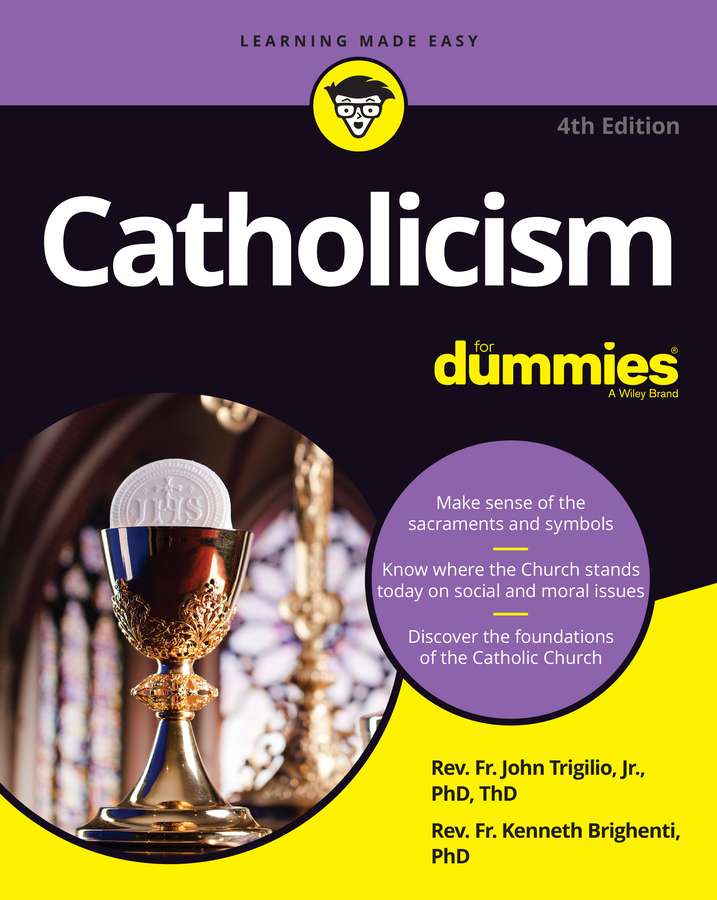With an apparent priest shortage and so many Protestant denominations embracing women ministers, some people wonder why the Catholic Church doesn't allow female priests. First of all, it's not because women aren't qualified or that they're somehow not worthy of this calling.
It's a constitutive element of the Sacrament of Holy Orders — any pope, council, or bishop can't change it. The same is true about the use of water for Baptism and bread and wine for Holy Eucharist. The elements of every Sacrament can't be changed, because Christ established it. This belief is shared by the Eastern Orthodox, who also don't ordain women for the very same reason. It has nothing to do with who's more worthy or suitable for Holy Orders in the same way that the ban on non-Catholics receiving Holy Communion has nothing to do with any moral or spiritual judgment on the persons involved. It has to do with Sacred Tradition, which is considered as divinely inspired as Sacred Scripture.
The reason the Roman Catholic and Eastern Orthodox Churches are unable to ordain women — be it to the diaconate, priesthood, or episcopacy — is actually threefold:
- The Church can't change what constitutes valid matter for any of the seven sacraments.
- Sacred Tradition, nearly 2,000 years old, has never had an instance of women priests.
- Jesus didn't ordain any women or call any of them to be apostles — thus excluding his mother even!
The Sacrament of Holy Orders
No pope, bishop, or council can change the constitutive elements of any of the seven sacraments, and a valid Sacrament of Holy Orders requires a baptized male to be ordained by a validly ordained bishop. Maleness is as essential to the Sacrament of Holy Orders as wheat bread and grape wine are to the Sacrament of the Holy Eucharist. So just as the pope can't change the requirements of valid matter for the Holy Eucharist, he can't change the requirements of valid matter for Holy Orders.
Sacred Tradition
Both the Catholic and Orthodox Churches believe that the revealed Word of God is both written (Sacred Scripture) and unwritten (Sacred Tradition). When the Bible is silent or ambiguous, Sacred Tradition authentically fills in the gaps. Sacred Tradition shows that women were never ordained, and Pope John Paul II's encyclical, Ordinatio Sacerdotalis (1994),clearly states that women can't be ordained.
It's not considered a matter of injustice, because not all men are allowed to be ordained. Just having a personal vocation isn't enough. The local bishop must call the man. No man can demand or expect ordination, because it's a gift, not a right. Think of it like this: Just as it's not unjust for men not to be able to give birth, it's not unjust for women not to be ordained.
Jesus and his apostles
The Church points to the fact that Jesus was both God and man. From all eternity, he was divine with a divine nature, intellect, and will. But he was also born of a human mother and took on a human nature as well. In his divinity, Jesus was God and pure spirit, but in his humanity, he was a man. His gender was more than accidental, because the Church is his bride. And because the priest acts in persona Christi (in the person of Christ) as an alter-Christus (another Christ), then the priest reflects Christ to the entire Church whenever he celebrates any of the sacraments. The maleness of Christ was part of who he was, and therefore, Jesus only called men to be his apostles even though his mother would've been a far better choice. But if a woman were to be ordained, she couldn't be espoused to the Church, because the Church is considered mother. A mother needs a father to complement the equation.
Catholicism regards Jesus as the groom and the Church as his bride. The priest is another Christ who acts in the person of Christ. The male priest represents the male Christ, and the priest is in a spousal relationship with the Holy Mother Church. Women priests don't fit into that typology.
The changing roles of women
Women have come a long way since the early and medieval Church. Although they can't be ordained priests, women have equal rights to be sponsors at Baptism and Confirmation. In Matrimony, they're treated and regarded as 100 percent full, equal partners with their husbands. Women can serve on the parish council and finance committees. They can be readers at Mass, extraordinary ministers (laypersons who assist the priest at Mass to give out Holy Communion) if needed, and ushers. They can work in the parish office, teach religious ed, and so on, just like their male counterparts. And many parishes have women pastoral associates — usually nuns or religious sisters who help the pastor with many spiritual and pastoral duties. In addition, women can hold positions of influence and power even in the diocesan chancery. The Church has women who are canon lawyers, judges, and chancellors across the country. The Church has allowed local bishops and pastors the option to permit female altar servers at Mass. Now many parishes have both altar girls and altar boys.

